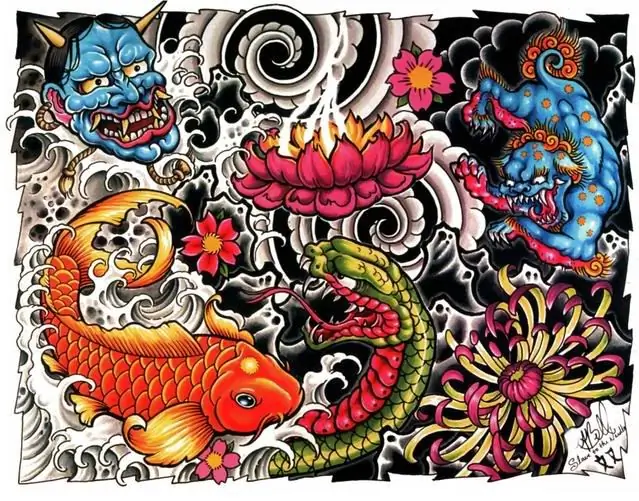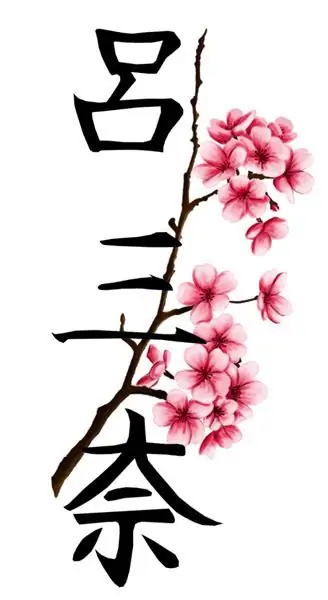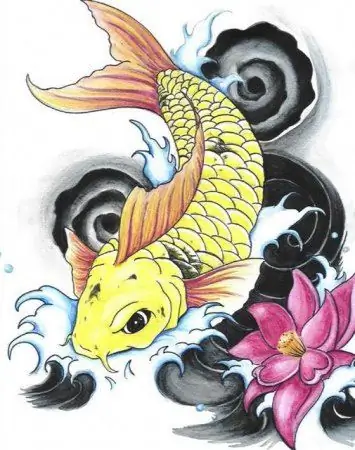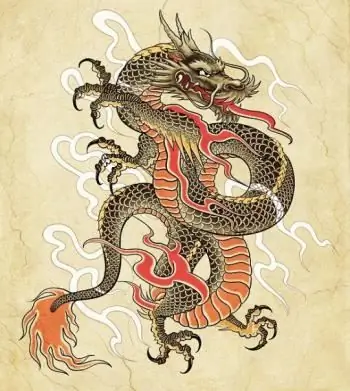Japanese tattoos have always piqued the interest of tattoo lovers. They are unusual and mysterious, which is why they are so popular. Let's consider the meaning of the most famous ones.

Instructions
Step 1
Japanese tattoos have a long and rich history. The first evidence of Japanese tattoos can be seen on 5,000-year-old figurines found in tombs. In addition, texts from the 3rd century AD say that Japanese men decorated their faces and bodies with tattoos. Over the centuries, mainly due to the powerful cultural influence of China, tattoos became taboo and were used mainly for criminals. An integral part of traditional Japanese tattooing was a complex system of symbols that was used to reveal a person's character. It was believed that a tattoo could even change him.
Step 2
Sakura
Sakura is a symbol of resilience. The beauty of cherry blossoms lies in the strength they have to survive in harsh conditions. Blooming sakura means the cycle of human life: birth, flowering, death. The Japanese see this as a direct idea of what life should be like. They believe that every day must be lived to the fullest, and that the awareness of death should only make us stronger.

Step 3
Koi carp
The brightly colored carp has special symbolism in Japanese culture, and can even be seen in many temples. The myth says that if a carp can swim upstream to the gates of heaven, then it will turn into a dragon. The carp image symbolizes luck, strength, ambition and individuality. Therefore, if you are looking for a tattoo that symbolizes struggle and perseverance, then the ideal choice is the Koi carp.

Step 4
The Dragon
The mythical dragon is what Japan is usually associated with. Dragons have an important place in Japanese culture. A dragon tattoo has many meanings such as freedom, courage, wisdom, power, strength, and even supernatural abilities. The colors used in the image of the dragon are of great importance, so you need to choose them very carefully.

Step 5
Chania mask
The Chania mask is a demon mask in traditional Japanese kabuki theater. She depicts a woman who was consumed with anger after being cheated on by a loved one. It is believed that the image of this mask drives away evil spirits and brings good luck.






